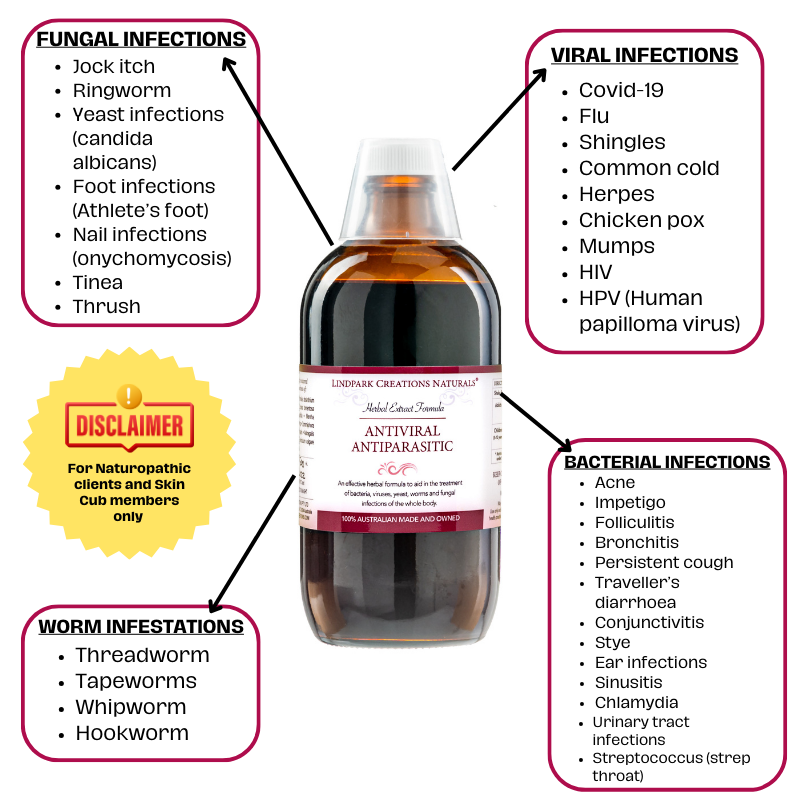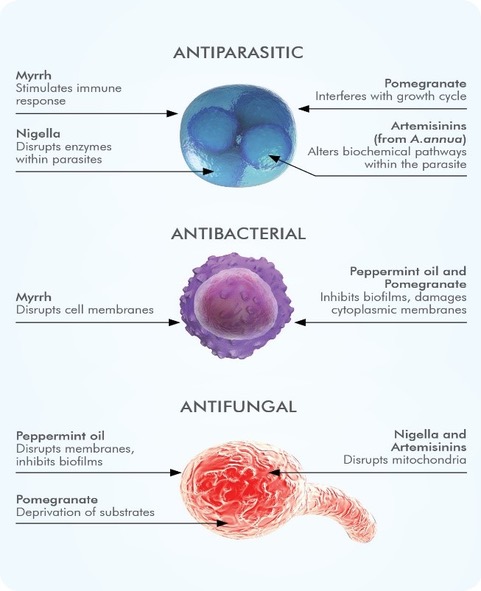Infections – whether bacterial, viral or fungal, will only occur when the body’s defences are weakened.
We live in a close symbiotic and mutually beneficial environment with numerous organisms. They not only live around us but also inside us. We both exist in homoeostasis. Many species of bacteria for instance, defend our body against the invasion of unfriendly microbes or parasites such as certain bacteria on the skin or in the intestines. However this ecological harmony can easily be disrupted, thus opening the gates for the invasion of parasites.
The best prevention of such an invasion lies in the maintenance of a natural and healthy outer and inner environment, with good hygiene and diet.
Influences such as an unhealthy diet, drug medications, vaccines, or a pre-existing disease can weaken the immune system.
Emotional and mental factors are also crucial to address. Stress and tension can obviously reduce our energy to allow infections to manifest, but “catching a cold” can often be a signal to us, a message from our body asking us to stop and look at what we are doing, or not doing!
To approach infectious diseases we have to recognise that we do not “catch” them out of thin air, but that we create the opportunity and the environment within our body, for the infection to thrive.
It is NEVER the bacteria’s fault!

To treat an infection we aim at restoring the normal resistance of the body, so a whole treatment ensuring health and vitality of all bodily systems is used.
The body is designed to protect itself and heal itself from infections taking over. Herbally, we support those systems. This may take a few days and may even interfere with our all-important work commitments, but the need and the message is clear – it is time to give our body and our way of life some attention, care and rest.
When there is widespread disease attacking many people simultaneously in a community (like Covid 19), it means that the group resistance is down and usually stress levels as a whole, are up!
More people died in the influenza epidemic that followed World War I than the war itself. This can be explained because of poor hygiene, sanitation and bad nutrition following that time, but it can also be seen as an outcome of deep communal wounds affecting the collective consciousness of humanity. These epidemics may be of influenza, AIDS, Covid or of fear, alienation and meaninglessness. Our health depends upon wholeness at all levels.
A number of animal species can become parasites in the human intestine. Each area on the planet has it’s own unique ecology and local variety of parasites.
The most important intestinal parasites in western society are worms: roundworm, tapeworm and threadworm. Foods for example that worms DO NOT LIKE are garlic, onions, pickles and salty things. Wormwood is the best herb for worms (including tapeworms).

Herbs for infections and infestations
Herbs can be used in two ways for infections and infestations; through their anti-microbial action they work directly against microbes and in addition they revitalise the body’s own defences. In most cases, they will do both these things at the same time.
Myrrh is an example of a herb which combines direct toxic action on bacteria with the ability to stimulate our body’s production of white corpuscles – the leucocytes – which are responsible for doing most of the defensive work in the body.
Other actions of herbs for infections are to eliminate toxins and toxic waste that the microbes and parasites release. Any accumulation of waste material in the body and toxins is the perfect environment for parasites to breed in.
The best anti-microbial herbs to combat infections of all kinds include Echinacea, Garlic, Myrrh, Thyme, Wormwood, Nigella, Peppermint, Black walnut, Aloe and Cats claw.
Stimulate Microbial Self-Destruction
As plants are as susceptible to pathogenic attack, as humans, it is not surprising they produce antimicrobial substances as defence mechanisms to help them withstand the invasion. Herbs are composed of a variety of constituents that have been shown together, or in isolation, to destroy pathogens in particularly interesting and effective ways.

